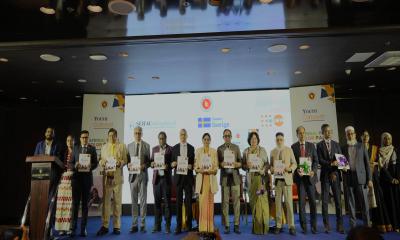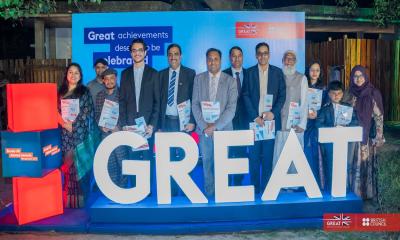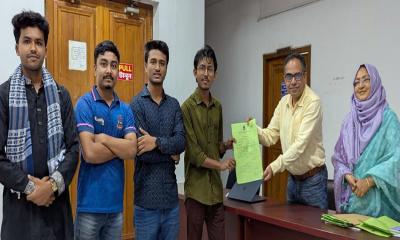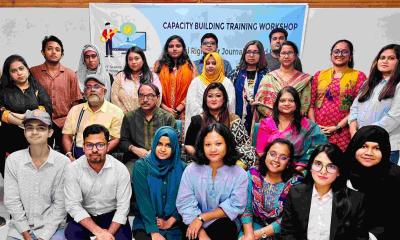Promotion of need-based income generation programmes can be the best way of transforming the ethnic minority youths into self-reliant.
Naturally, the youths are laborious and devoted to various work-oriented activities and if they get support of different time-fitting trades and vocations they would be social contributors side by side with making them worthy citizens.
Academics and development activists came up with the observation while addressing a 'workshop for action plan development and recommendations proposed in policy paper' at Master Chef Restaurant in the city today.
Agriculture Sustainable and Socio-economic Development Organisation (ASSEDO) and Traidcraft Exchange jointly organised the view-sharing workshop in association with 'Fighting Forced Labour with Adivasi and Dalit Communities in South Asia (MUKTEE) Project' and European Union.
Professor Chowdhury Sarwar Jahan from the Department of Geology and Mining in Rajshahi University (RU) addressed the meeting as chief guest with ASSEDO Executive Director Rabiul Alam in the chair.
Traidcraft Exchange Country Director Shahed Ferdous, Editor of Daily Sonar Desh Akbarul Hassan Millat and Deputy Director of the Department of Youth Development Golam Mahbub also spoke on the occasion.
Prof Kamal Pasha, Chairman of the Department of Anthropology in RU, presented a draft policy on the issue, while Raisha Adiba, Programme Manager of Traidcraft Exchange, welcomed the participants.
Rabiul Alam told the meeting that around 4,000 ethnic minority people including 2,000 women have been involved in various income-generating activities in 30 villages under Tanore Upazila in Rajshahi and Nachole Upazila in Chapainawabganj districts with the MUKTEE Project intervention.
Besides, 1,000 of the enlisted people from 2,000 households have been brought under need-based training on various trades and vocations like electrics, mobile, mechanic, tailoring, computer operating, beautification, driving, carpentry and building construction.
Islam said the project is intended to address the systemic and structural vulnerabilities of marginalized agricultural communities for eliminating the menace of child labour.
Around 100 people, including government and non-government officials concerned, ethnic minorities, professionals and members of the civil society, took part in the workshop and they placed a set of recommendations on how to improve living and livelihood conditions of the ethnic people.














-20260304091720.webp)






-20260303080739.webp)










-20260225072312.webp)





-20260228064648.jpg)
